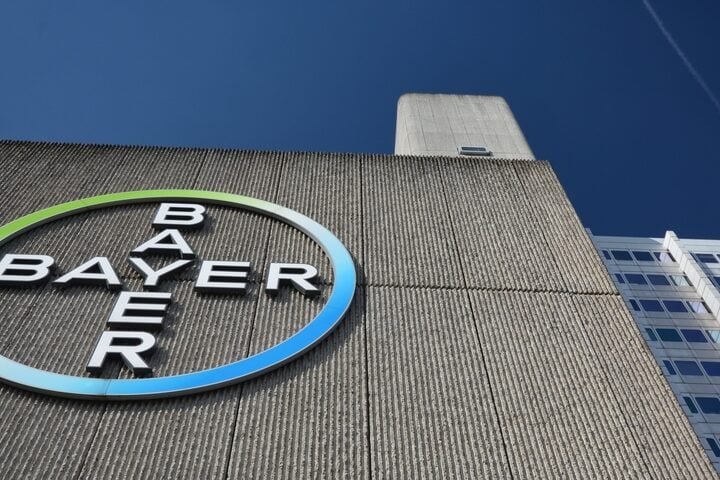TD Bank is facing significant regulatory challenges, with reports indicating that the Canadian financial institution could be hit with $3 billion in fines and new restrictions on its U.S. operations. These penalties are linked to the bank’s failure to prevent money laundering activities associated with drug cartels. The anticipated actions from the U.S. Office of the Comptroller of the Currency (OCC) come as a major setback for TD Bank, casting uncertainty over its U.S. growth prospects and raising concerns among investors.
Major Penalties: Fines and Limits on U.S. Operations
According to The Wall Street Journal, the OCC is expected to impose a $3 billion fine on TD Bank while also limiting its ability to expand its U.S. retail operations. These penalties are tied to allegations that the bank did not adequately enforce anti-money laundering (AML) practices, allowing illicit activities to flow through its systems.
This situation is further complicated by pressure from the U.S. Department of Justice (DOJ), which is reportedly urging TD Bank’s U.S. unit to plead guilty to criminal charges related to money laundering operations involving a Chinese crime organization. The allegations have put a spotlight on the bank’s internal controls and raised questions about its overall compliance effectiveness.
Financial Fallout: Preparing for a Hit
To brace for the expected penalties, TD Bank set aside billions of dollars in reserves during its third-quarter financials, which led to an unexpected quarterly loss. The preparation highlights the bank’s acknowledgment of the financial impact of these penalties. Despite these efforts, the scale of the fines has weighed heavily on market sentiment. Shares of TD Bank fell 4.5% in premarket trading on Thursday, adding to its year-to-date decline of 1.7% as of the previous day’s close.
The $3 billion fine represents a significant financial strain, potentially limiting the bank’s strategic flexibility in the U.S. market. The OCC’s decision to restrict TD’s ability to expand its U.S. footprint may also hinder its long-term growth, particularly in a market where it has been actively seeking to strengthen its presence.
Leadership Change Amid Regulatory Pressure
These regulatory challenges come at a time of transition for TD Bank’s leadership. CEO Bharat Masrani recently announced that he would step down in April 2025, marking the end of a tenure characterized by notable growth but also marred by these compliance setbacks. The bank has already initiated a plan for his successor, but investors are likely to scrutinize how the new leadership will address the ongoing regulatory challenges.
Masrani has previously emphasized the bank’s efforts to work closely with U.S. regulators to resolve AML issues. However, the latest developments suggest that these efforts have not been sufficient to avoid substantial penalties. The upcoming CEO transition could be an opportunity for TD Bank to reshape its approach and improve its regulatory track record.
Background of the AML Investigation
The penalties imposed on TD Bank are part of a broader scrutiny of its adherence to AML regulations. The DOJ’s investigation focuses on allegations that the bank’s U.S. branch allowed criminal networks to use its services for laundering money. The OCC’s decision to impose restrictions reflects concerns over TD Bank’s ability to maintain robust anti-money laundering controls.
TD Bank’s compliance challenges are especially critical given its status as one of the largest foreign banks operating in the U.S. The bank’s extensive retail banking network has been a key part of its expansion strategy, but the ongoing AML issues now threaten to curtail this growth. The situation highlights the complexities that financial institutions face in ensuring compliance with ever-tightening regulatory standards.
Market Reaction: Investor Concerns Deepen
News of the impending $3 billion fine and restrictions on U.S. growth had an immediate impact on TD Bank’s stock, with shares dropping 4.5% in premarket trading. The market reaction reflects concerns over how the penalties could constrain the bank’s ability to achieve its strategic objectives in the U.S. The fines come at a time when banks globally are dealing with increased regulatory scrutiny, particularly around AML practices, adding another layer of pressure on TD Bank’s operations.
Investors are wary of how these developments could affect the bank’s earnings potential, especially as it faces a challenging economic environment. The limitations on U.S. expansion could force TD Bank to rethink its growth strategy and focus on strengthening its compliance systems to regain market confidence.
What Lies Ahead for TD Bank?
As TD Bank navigates the aftermath of the AML probe, its focus will need to shift toward enhancing its compliance framework and addressing regulatory concerns. The bank’s leadership transition presents a pivotal moment to realign its strategic priorities and ensure it meets the standards expected by U.S. regulators.
The OCC’s decision to limit the bank’s U.S. operations is a significant challenge, but it also serves as a wake-up call for TD to improve its internal controls. Resolving the DOJ’s criminal charges and demonstrating progress in addressing AML deficiencies will be crucial for restoring investor trust and positioning the bank for recovery.
Conclusion
TD Bank’s looming $3 billion penalty and growth restrictions in the U.S. market represent a substantial regulatory hurdle, highlighting the importance of rigorous AML compliance for financial institutions. As the bank prepares for a leadership change and works to resolve the issues raised by regulators, it faces the dual challenge of managing financial penalties while maintaining a path for future growth. By focusing on strengthening its compliance framework, TD Bank may be able to emerge from this crisis in a stronger position, but the road ahead will require careful navigation and a renewed commitment to regulatory standards.







